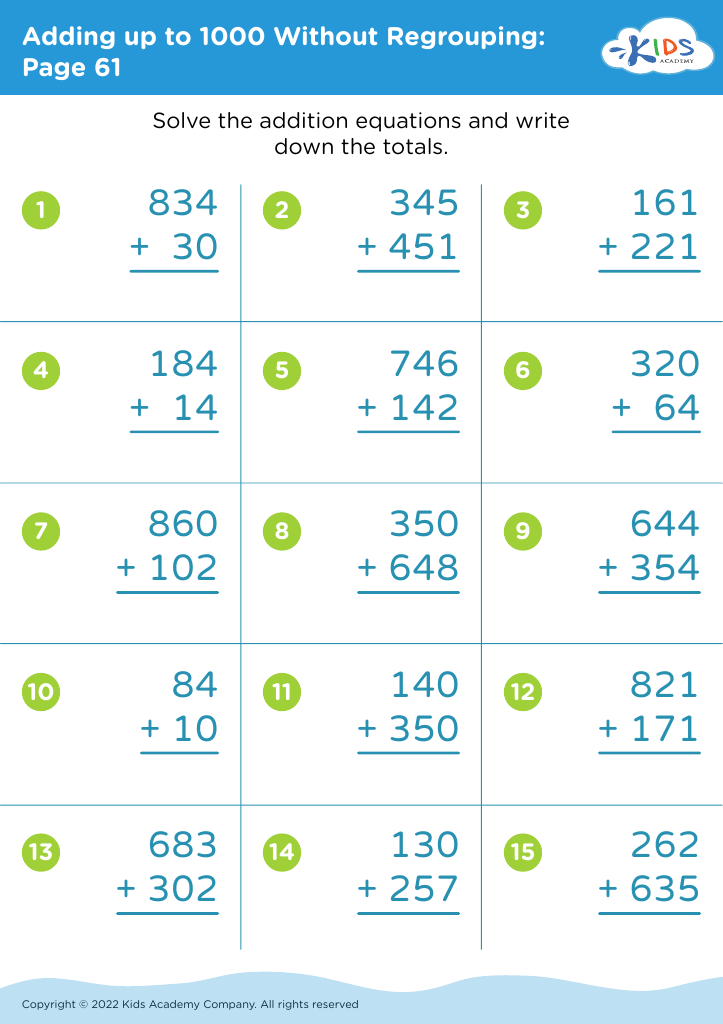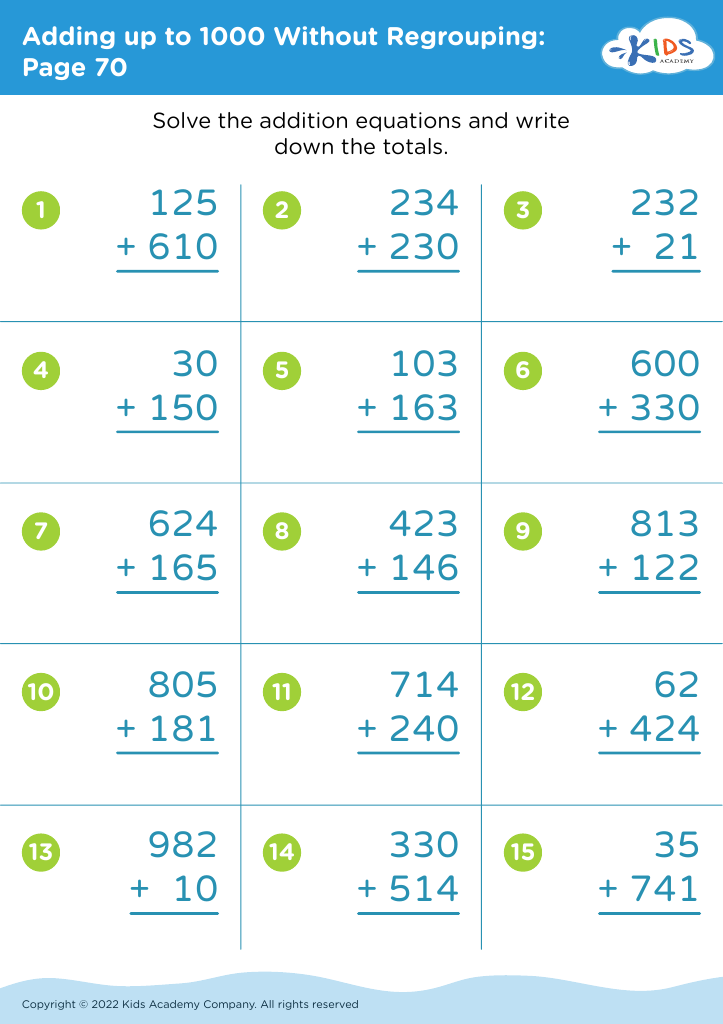Basic Addition Adding up to 1000 Without Regrouping Worksheets for Ages 6-8
4 filtered results
-
From - To
Welcome to our "Basic Addition Worksheets" designed for children aged 6-8! These engaging and easy-to-follow worksheets help young learners master addition skills, focusing on sums up to 1000 without the need for regrouping. Our resources foster a solid foundation in mathematics through fun, hands-on exercises that develop critical thinking and problem-solving abilities. These worksheets are perfect for individual practice, classroom settings, or homeschooling environments. Encourage your child's confidence in math with our colorful and interactive materials, allowing them to explore the world of numbers while honing their addition skills. Start their mathematical journey today and watch them thrive!
Parents and teachers should prioritize Basic Addition skills, especially adding up to 1,000 without regrouping, for children aged 6-8 for several reasons. Firstly, this foundational skill is critical for developing a child's overall numeracy. Mastery of addition enhances their confidence and prepares them for more complex mathematical concepts, such as subtraction, multiplication, and division.
At this age, children are in a prime stage for cognitive development, and solidifying their understanding of addition helps reinforce their ability to think logically and solve problems efficiently. Moreover, these skills contribute to real-world functionality; children will encounter addition in everyday activities, such as handling money, measuring ingredients for a recipe, or planning time.
By focusing on addition without regrouping, educators can provide an environment where students can practice and internalize the process without the confusion that regrouping might introduce. This approach streamlines learning, promotes accuracy, and encourages a positive attitude toward math, fostering a lifelong appreciation for the subject.
Finally, parental involvement in practicing addition at home can further reinforce these concepts, creating a supportive learning atmosphere that bridges home and school—ultimately setting the stage for academic success in mathematics and other academic areas.

















